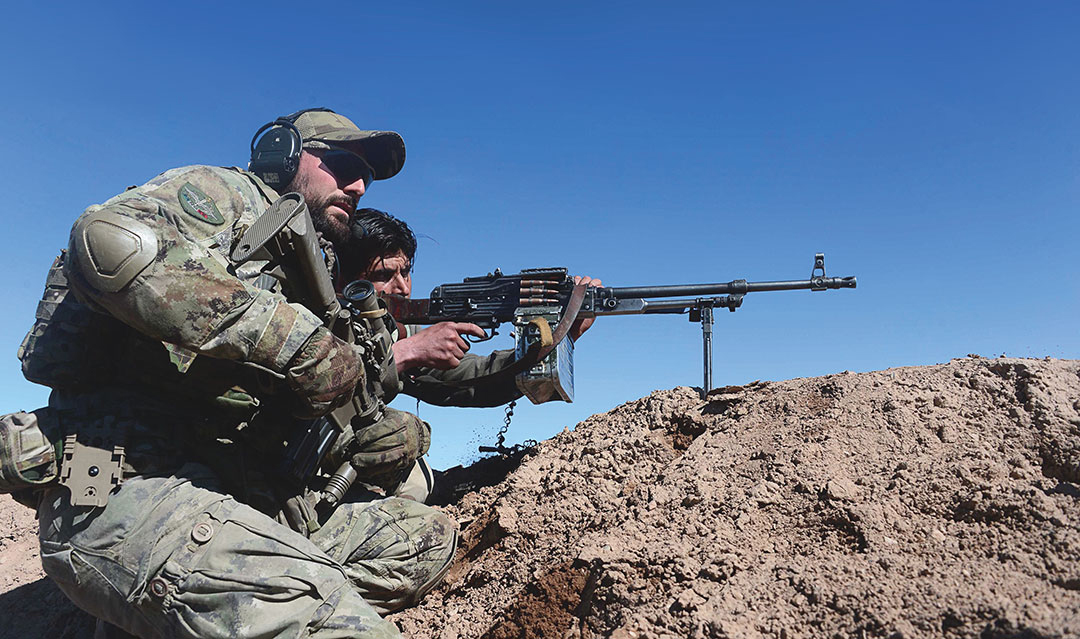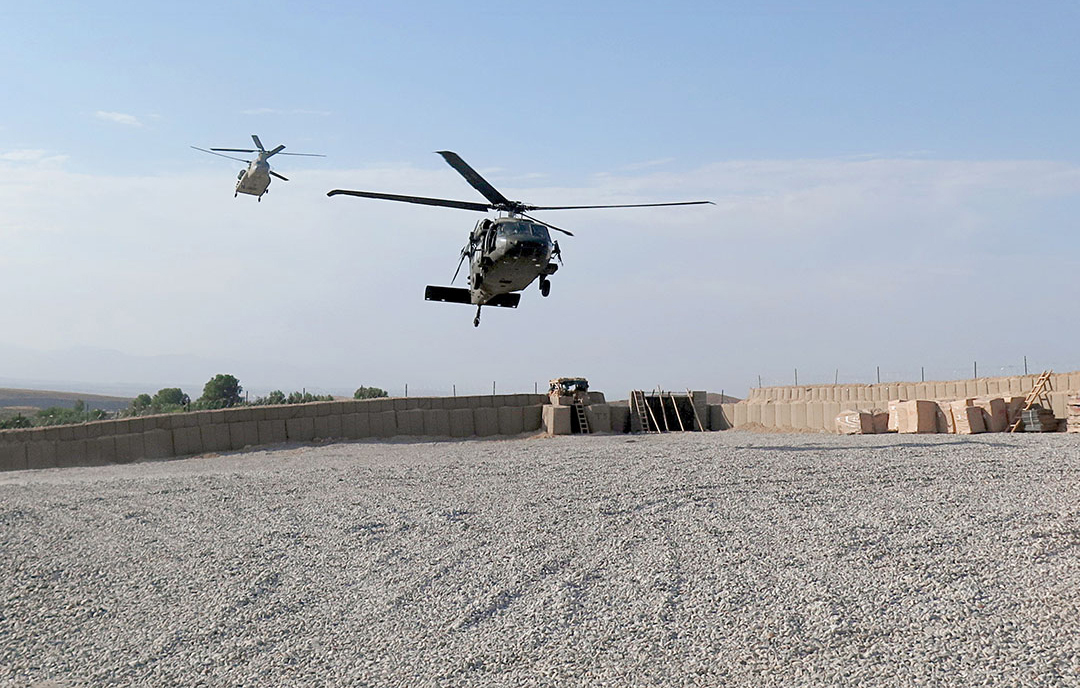NATO Aids Afghanistan
The training and advising role benefits Afghan security by helping to marginalize violent extremists
AHMAD MURID PARTAW, FORMER AFGHAN SENIOR REPRESENTATIVE TO U.S. CENTRAL COMMAND
Since the fall of the Taliban regime in 2001, Afghanistan has been able to engage positively across different areas with the United States, NATO and the broader international community.
While the initial mission of the military coalition that toppled the Taliban was to restore peace and stability, various factions within the international community have striven to rebuild the Afghan state with their own visions and motives in mind. This has led to the reconstruction of the war-torn country in numerous areas of social, political and economic aspects.
NATO’s post-Taliban engagement in Afghanistan was a joint effort to develop an enduring partnership with the Afghan government and its security forces. To this end, the alliance established the International Security Assistance Force (ISAF) in December 2001 in close coordination with United Nations Security Council Resolution 1386.
The primary mission of ISAF was to strengthen local forces and stabilize the country after the fall of the Taliban. Consequently, the ISAF mission was able to build the largest coalition in NATO’s history with over 140,000 Soldiers from 51 NATO and non-NATO partner nations serving in Afghanistan. This was implemented in collaboration with the Afghan interim government to provide security assistance and training to the newly established Afghan National Security Forces (ANSF).

For many years, ISAF played the leading combat role to help protect the Afghan government. It was initially active in the capital, but gradually expanded its mission toward the eastern and southern parts of the country.
In 2003, at the request of the government of the Islamic Republic of Afghanistan, NATO took primary command of ISAF to provide security outside of the capital, Kabul. As the Taliban insurgency spread and intensified in rural areas during 2007 and 2008, new counterinsurgency tactics were introduced to combat those wishing to destabilize Afghan society. As a result, the Taliban lost momentum and were ejected from most population centers.
After the transition in 2014, ISAF shifted its security role from combat to a training and advising mission aimed at preparing ANSF to take the lead in providing security for the country.
Accordingly, the ANSF, better trained than ever, were able to take responsibility for security across the country. Since then, Afghan national defense and security forces have shown competence and bravery in defending their homeland.
Moreover, the ANSF have also demonstrated remarkable resilience in the face of Taliban attacks and have proved they are able to defeat the insurgents. For this reason, the Taliban and other insurgent groups have not been able to hold any major urban or population centers since the withdrawal of U.S./NATO troops.
When the ISAF mission was completed after the transition of security responsibility to the ANSF in 2014, NATO remained determined to maintain a long-term relationship with the Afghan government through an advisory role. To that end, on January 2015, NATO launched another crucial mission for the security of the Afghan people under the name of Resolute Support (RS).

RS aimed to train, advise and assist Afghan security forces in the fight against multiple insurgent groups operating in Afghanistan and broader region. The decision was made during the 2016 NATO summit in Warsaw and subsequent summits in Brussels, where NATO leaders agreed to extend the RS mission and reaffirmed their commitment to support Afghanistan in its quest for peace and stability through 2024.
Since then, the enduring partnership between NATO and the ANSF has paved the way for improved security and governance, despite serious challenges. This is crucial because by supporting the Afghan government and continuing security assistance to the ANSF, NATO and other partner nations help prevent the Taliban from taking over the country to re-establish it as a sanctuary for terrorist organizations.
Therefore, one of the main objectives of the RS mission has been to provide advice and assistance for Afghan security institutions and to empower them in their fight against the Taliban, Haqqani Network and ISIS-Khorasan province (ISIS-K). As a result, the capabilities of Afghan security forces have significantly improved against these insurgents.
For instance, Afghan Special Forces are excelling in the fight against the Taliban and other extremist groups. The Afghan Special Operation Corps — a U.S./NATO trained military unit — has racked up numerous achievements. These well-trained and well-equipped forces have inflicted heavy casualties on ISIS-K and other transnational extremist groups in recent years.
Today, these forces are in charge of their own combat and counterterrorism operations in different parts of the country. Likewise, Afghan commandos are now increasingly capable of conducting night operations after receiving the necessary training from their U.S./NATO counterparts.
The night air assault operations conducted by Afghan Special Forces have been extremely effective in killing and capturing terrorist elements. By conducting these operations, the Afghan commando units have been able to break the momentum of the insurgency, dealing major blows to their command and control across Afghanistan.
As the ANSF become more capable in defeating the insurgency and maintaining security, the Taliban have little choice but to come to the negotiating table. Furthermore, the strength of Afghan forces in recent years has demonstrated that their enemies cannot win militarily. The only way forward for these groups is to respect the Afghan Constitution and join the political process.
The Taliban and other insurgent groups should realize that Afghan forces are now capable of securing the country and will never allow terrorist groups to hide, plan and operate from Afghan soil against its people and those of other states.
It’s important to reiterate that Afghan security forces do not stand alone in their struggle against these terrorist groups. As ANSF capabilities grow, the U.S. and NATO remain steadfast in helping Afghan troops in the fight against terrorism and extremism.


Comments are closed.